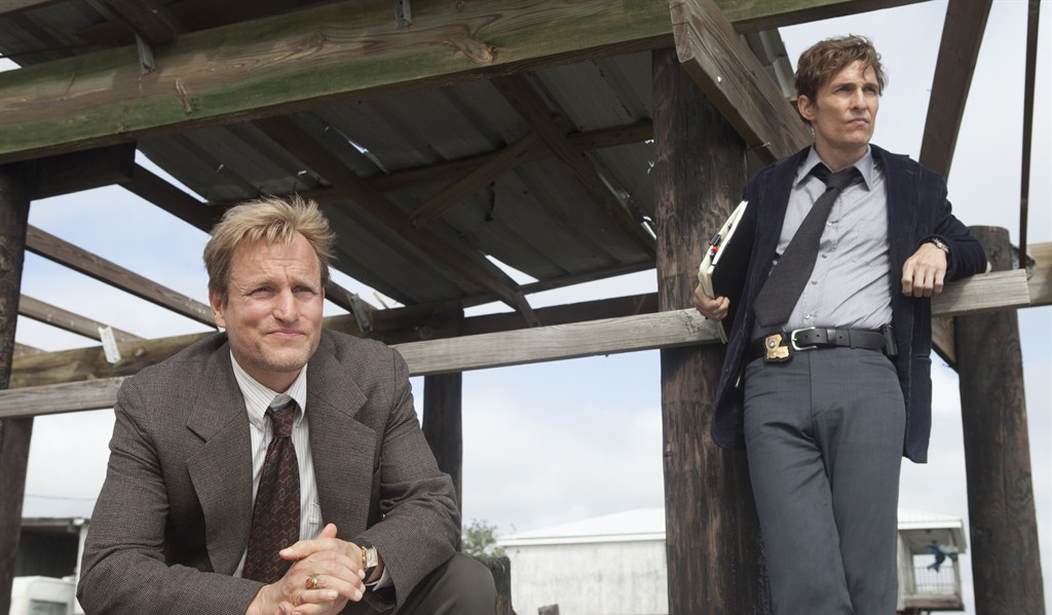In its patently ridiculous decision declaring that the "right of the people to keep and bear arms" found in the Hawaii constitution doesn't actually protect the right of an individual to possess or carry a firearm, state Supreme Court justices quoted from the HBO series "The Wire" to help explain their rationale.
“The thing about the old days, they the old days,” the unanimous Hawaii Supreme Court ruling issued Wednesday said, borrowing a quote from season four, episode three of the HBO series to express that the culture from the founding of the country shouldn't dictate contemporary life.
Ironically, that same decision relied extensively on "the old days" to declare that no individual right to keep and bear arms exists in the state.
So to be clear, in its analysis of the Hawaii right to bear arms provision, which is identical to the federal one and was adopted by the Hawaii legislature in 1950, the Hawaii Supreme Court looks to the history of Hawaii when it was a foreign nation.
— Kostas Moros (@MorosKostas) February 7, 2024
Cool. pic.twitter.com/oaXl3fkXc9
I guess only some history matters to the justices. In fact, Moros found an even better example of the court picking and choosing which parts of the past to recognize.
Turns out a collective/militia-only style version of a right to bear arms was proposed when Hawaii was debating their new constitution, but was not adopted. (Other rejected provisions in this nearly 200 item list include banning the communist party haha)
— Kostas Moros (@MorosKostas) February 9, 2024
One would think the… https://t.co/Q1RcvVZJe8 pic.twitter.com/ZsqOoS4Aot
Guess those old days weren't so old after all, huh?
Personally, I think a quote from another HBO series is far more applicable when it comes to the right to keep and bear arms than the one the justices cribbed from The Wire.
"Time is a flat circle. Everything we've ever done or will do we're gonna do over and over again."
That adage applies as well to the right to keep and bear arms as it does to attempts to subvert that right. The ability to possess and carry firearms has existed long before the 13 colonies transformed themselves into the United States, and it exists today just as it did back in 1791... even in those states that weren't a part of this country until long after the Second Amendment was ratified.
The Hawaiian Supreme Court maintains that the state has somehow outgrown the Second Amendment's protections (even though they also contend that the state never recognized a right to own or carry a firearm), that as times change so too do our rights. But even under a "living constitution" theory it's clear that the right to keep and bear arms is still held dear by tens of millions of Americans, including residents in the islands. After the Bruen decision was handed down, for instance, and Hawaii was forced to start issuing concealed carry licenses after decades of playing the right to carry off-limits to average citizens, thousands of residents almost immediately applied for their carry permits; a pretty good indication that there are plenty of Hawaiians who aren't ready to bid farewell to their Second Amendment rights.
As Moros noted in his expert takedown of the Hawaiian court's opinion, when the language about the right to keep and bear arms was placed in the state constitution in the 1950s, the National Guard was already in existence. Why would lawmakers have borrowed the text of the Second Amendment for their own constitution if they were only talking about the right to own firearms in connection to service in the militia, as the justices claim was the case? It doesn't make any sense for them to specifically include language that was already a historical anachronism, so they must have believed they were protecting some sort of individual right.
It was an individual right then, just as it's an individual right now. The Kingdom of Hawaii's "Law of the Broken Paddle" or the "spirit of Aloha" can't trump the Second Amendment, the Fourteenth Amendment, or the plain text of the Hawaii Constitution any more than the Hawaii Supreme Court can wish away the right to keep and bear arms with an incoherent legal decision. Old days may be old days, but old rights are just as valid today as they were in 1791, 1868, or 1959.








Join the conversation as a VIP Member